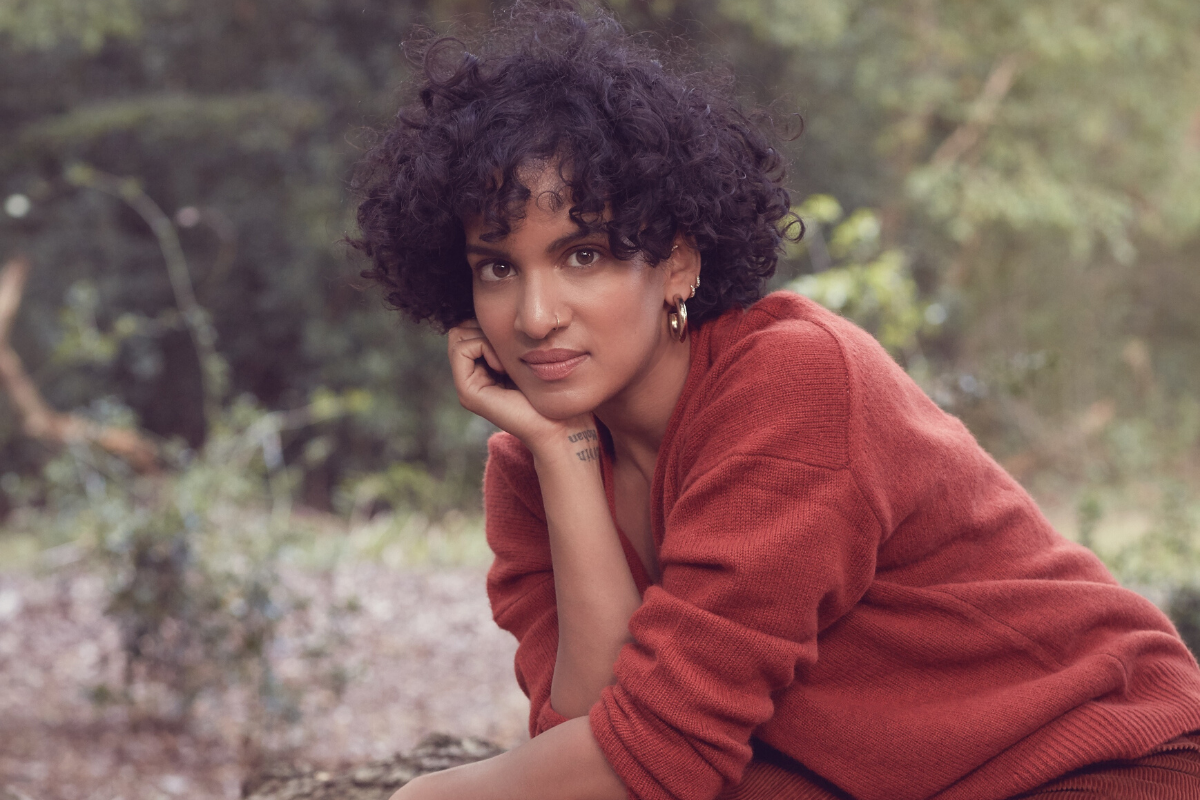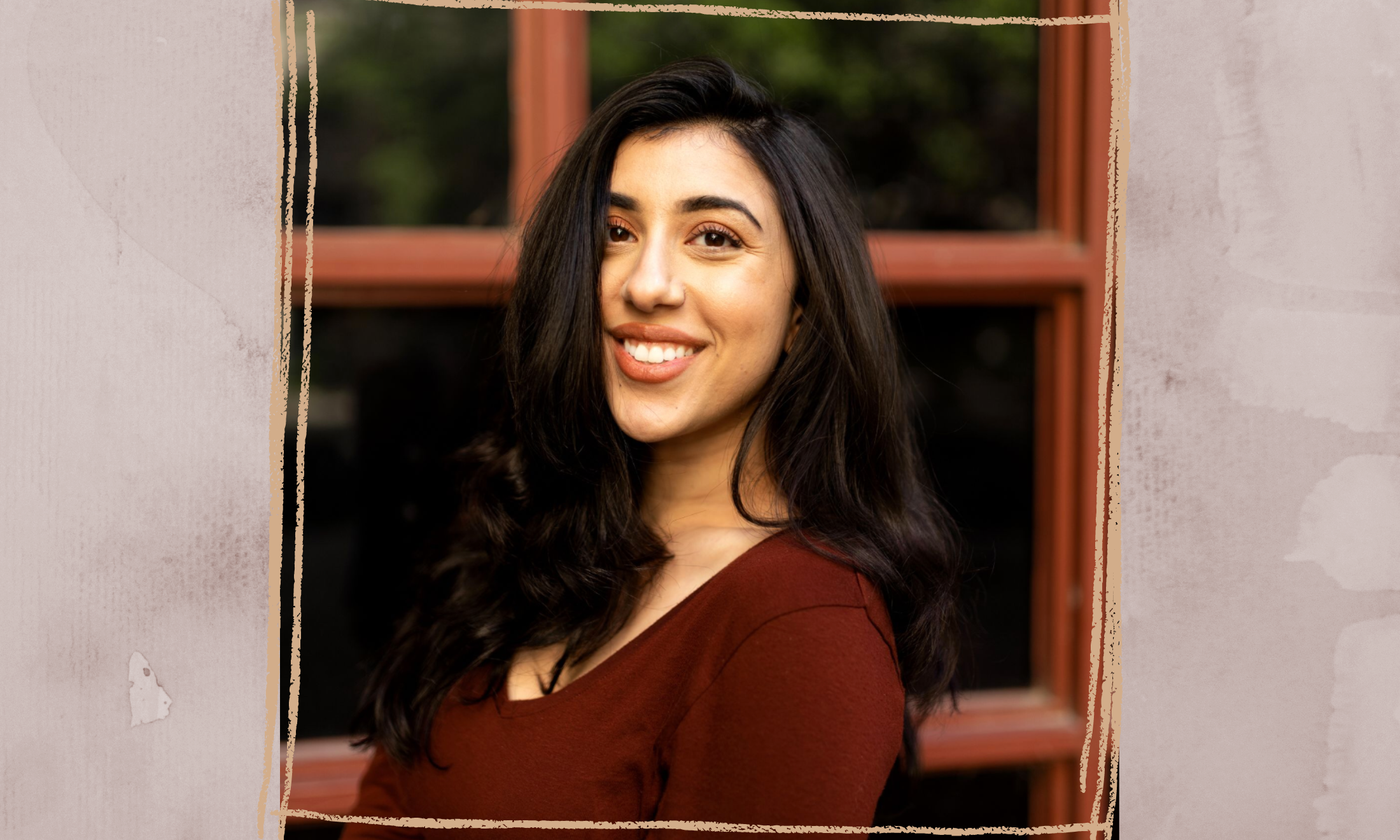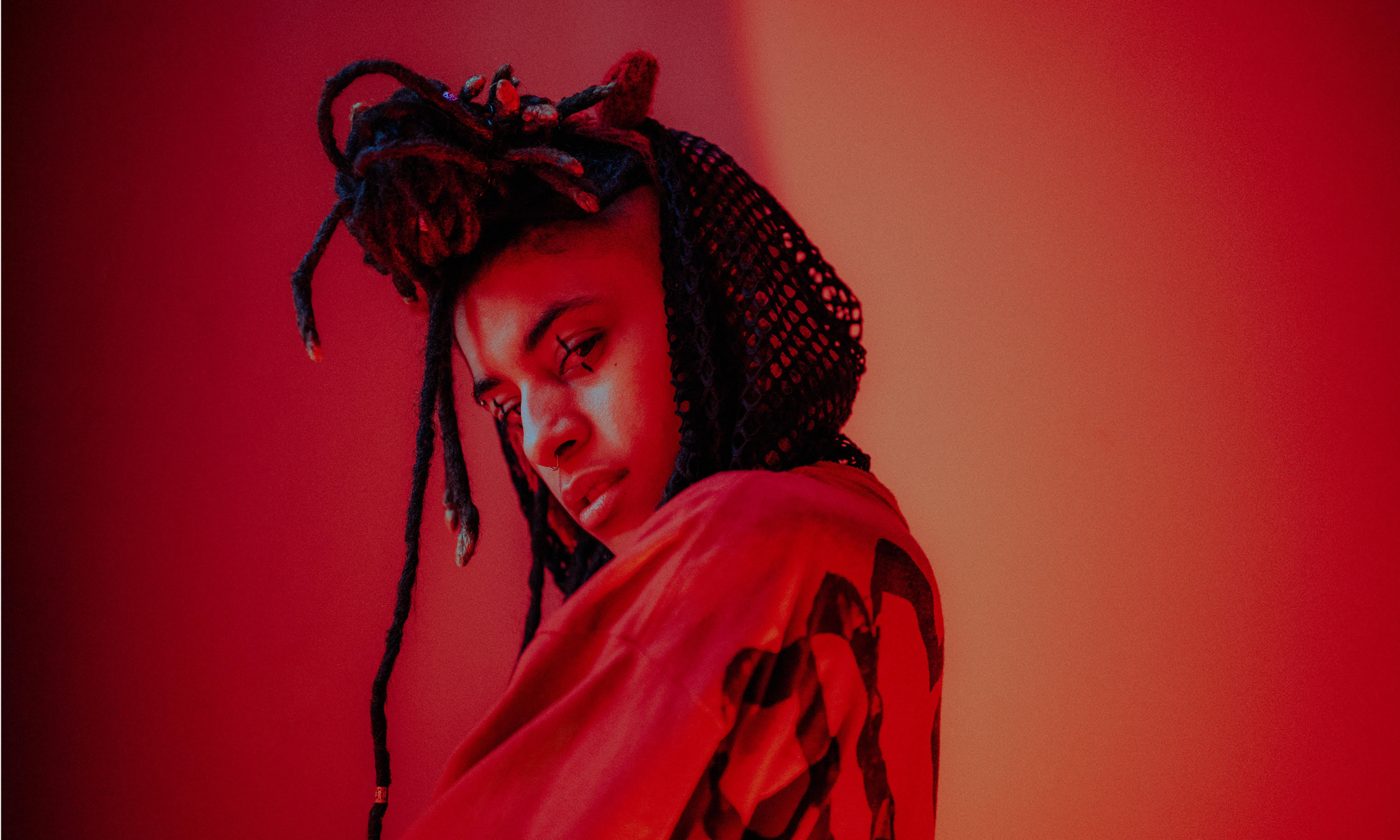
‘Motherhood helped me have a lighter touch with music’: Anoushka Shankar interviewed
Malvika Padin
29 Nov 2019
Photography by Laura Lewis
As someone who grew up deeply rooted in the traditions of Indian music, sitting in front of Anoushka Shankar in her London flat is nothing short of a dream come true for me.
Daughter of sitar maestro and Indian music legend Pandit Ravi Shankar, Anoushka is a six-time Grammy Award-nominated sitarist, composer and producer. She began her musical journey at the age of seven, giving her first public performance at 13 and signing her first record deal at 16; blooming into a legend in her own right as the youngest-ever and first woman nominee in the “World Music” category for a Grammy in 2003.
Now she returns for the first time in three years with new music; last month she released the track ‘Lovable’ with French-Cuban twin sister duo Ibeyi, and this week she put out a double-single with Turkish-German singer-songwriter Alev Lenz – ‘Bright Eyes’ and ‘In This Mouth’.
Speaking about everything from the impact of motherhood on her craft to the importance of being true to yourself, the chat gets cut short as Anoushka gets pulled away into the busy role of being a mother. Nonetheless, it feels like a lifetime of wisdom has been imparted, as the Indian classically-trained side of me awakens with a renewed love for the music that was – and will always be – a part of my identity.
gal-dem: What excites you most about making and releasing new music?
Anoushka Shankar: It’s always exciting to finally have that piece of work you’ve been privately working on out there for people to listen to. At the end of the long writing and recording process, it feels good to hear feedback – to hear that people are connecting.
These releases are the first to be taken from stuff which you’ve worked on across the past year. Any idea when you’ll release the rest of the songs?
No idea! I’ve come at music from such a “career space” for so long and this body of work is very different for me. Not only is it more vocal-centric than usual, but I’m also playing with releasing them in a gentle way. I’m just letting them evolve – releasing one then easing off, then potentially releasing another. There are a bunch of songs that I’m proud of which have been cathartic for me emotionally. But I’m not sure yet what I want to do with them.
What was the inspiration behind ‘Lovable’?
The inspiration came from the last few years of my life, working through my emotions and finding myself being drawn naturally to women, who became my support system personally, and they became who I leaned into creatively as well. In the last couple of years I’ve gotten into just inviting over women creatives over for tea, having a chat and writing a song together, so reaching out to Lisa from Ibeyi was a natural extension of meeting them [Ibeyi]; enjoying their music as well as discovering how wonderful they are. I’ve realised that I am drawn to writing with women and it’s all a very organic process as I invite more of them over.
“There were some days we’d end up writing only one line because that’s all our kids would allow. In a traditional work set-up, I would have felt guilty and unprofessional – here I felt it was so respectful of the ‘mother’ identity”
– Anoushka Shankar
What drew you to work with women ? And what would you say was the best part about it?
I am someone in a position of power to support other women. I’m a feminist, and I’m involved in activism, but it was about whether I was doing it [activism] in my life where I could by working with more women. I was going through a breakup and leaning on women heavily, some of whom happened to be musicians so it transitioned very naturally.
It’s lovely working with people who get things on an instinctive level. Some of my co-writers were also single parents or parents of young kids, so it was about meeting for a couple of hours, where some days we’d end up writing only one line because that’s all our kids would allow and we’d just meet another day to do it. In a traditional work set-up, I would have felt guilty and unprofessional – here I felt it was so respectful of the “mother” identity. The whole experience was a pleasure, there was no stress because it fit into my life without disruption.
So how has motherhood positively impacted your music?
I feel so much freer, everything clicked into place. Motherhood helped me have a lighter touch with music – it became an outlet rather than an all-out career, taking out the agony of obsessing over perfecting it. It put things into perspective for me.
“If equal representation isn’t happening in life, why would it happen in the music industry?”
– Anoushka Shankar
As a woman in the music industry, what’s one thing you believe can be done to improve the position of women – particularly women of colour – in music?
If equal representation isn’t happening in life, why would it happen in the music industry? Things need to change fundamentally before looking into music. In music, it’s small things that could lead to a domino effect. People in powerful positions can make a difference: producers on radio shows can be more conscious of how many women and people of colour are being invited onto the show; people hiring band members should be thinking about women instrumentalists who could be given the chance to play.
As a South Asian woman yourself, do you believe a person’s heritage and culture can give them an edge?
If you’re true to yourself and it’s important to you then yes it can. If you make any art from a truthful place it will represent who you are: your identity, where you come from, your culture – which will then speak to other people, helping them feel seen, heard and represented.
Speaking of feeling seen and heard, if listeners could take away one message from your music what would you want that to be?
Hope. My last album, Land of Gold, which was written in response to the refugee crisis, made me realise that no matter how dark I go with my music and messages, I always end on a hopeful note.
Along the same vein, is there a piece of advice that you hold close personally that you’d give to other people?
Nothing lasts forever – even the darkest times will end. When you’re in it, it feels like it will never end, but I’ve had enough of those experiences now to know that each time I will get past them. I have faith in myself and know if I keep going I’ll get through it.
“Usually when words are really personal to me I tend to hide behind my instrument, letting other people sing them – so it felt nice stepping into this work where it’s my melody and words in my own voice”
– Anoushka Shankar
You don’t usually sing in your songs, what made you want to sing on ‘Lovable’?
It was because of a safe, nurturing encouragement. Usually when words are really personal to me I tend to hide behind my instrument, letting other people sing them – so it felt nice stepping into this work where it’s my melody and words in my own voice. I would never sing all of it though, because I love collaboration.
So would you sing again in future work?
I’m definitely not sitting here thinking I’ll take a big turn into being a vocalist. However, singing on this collection has helped remove a big block where I thought of myself as a non-vocalist.
I know you’ve tried your hand at dance, acting, even journalism. Which of these creative outlets are an alternate form of inspiration to you aside from your music?
Taking in other art is so inspiring, which is one of the reasons I love living in London. Just in the last month, I’ve been to such a range of gigs. I was at Kate Tempest and then a day later at the Darbar festival listening to Shivkumar Sharma. Watching contemporary dance in particular inspires me as well.
What’s been the most memorable moment of your career?
I can’t narrow it down to a single moment, because I’ve been touring for 25 years and making albums for 20. But I think unusual one-offs – while not necessarily career highlights – are special. Like, that one time we played at a limestone quarry in Sicily which had an awe-inspiring view, or playing at the transformational, psychedelic Boom festival.
What are your hopes for the future, musically and otherwise?
I want to grow with each piece of music I make. But if I get to keep making music that I love and make a career out of it where people enjoy listening to it, there isn’t much more I’d hope for. Other than that, I just want my kids to be healthy and happy!
Finally, what’s one question no one asks you in an interview you wish you were asked?
It’s rare that I get technical questions about music, so I do enjoy when people ask me questions about how I did something or figured something out.
Anoushka Shankar plays a currently sold out series of shows at London’s Southbank Centre, 3 – 5 December.








